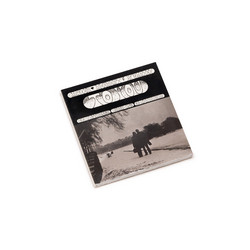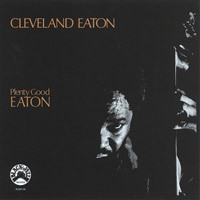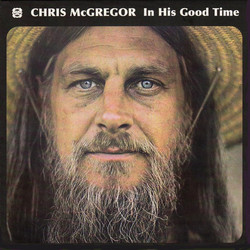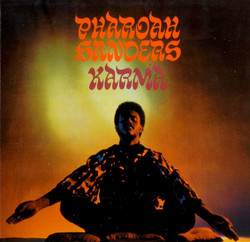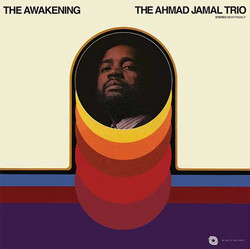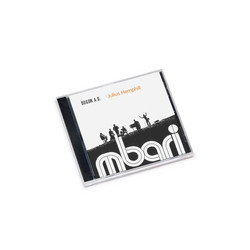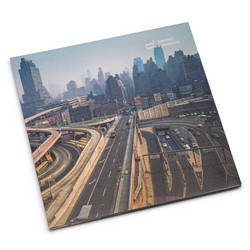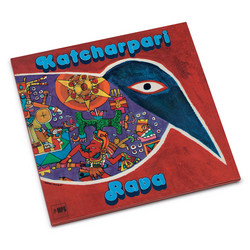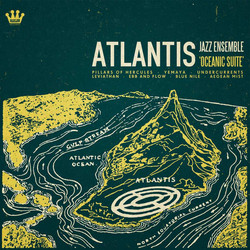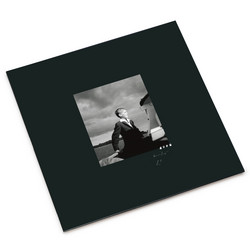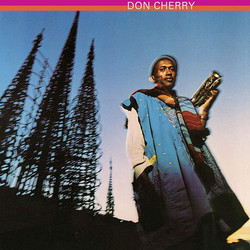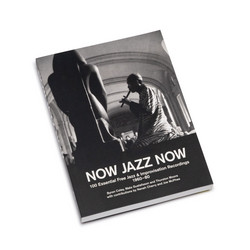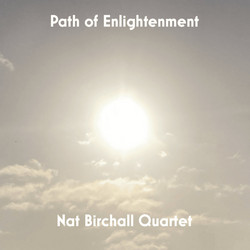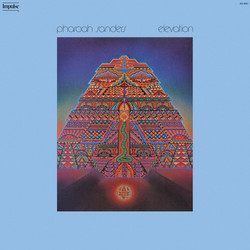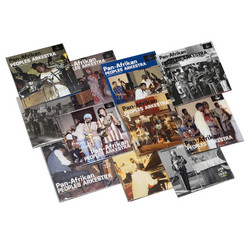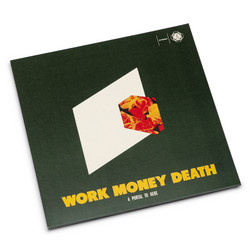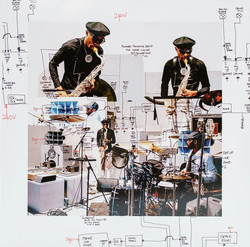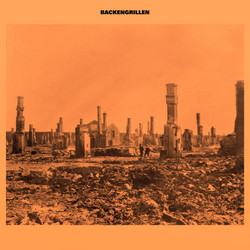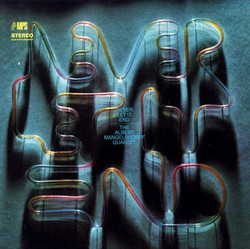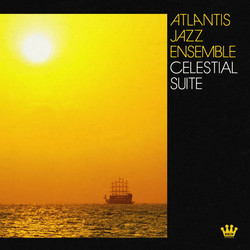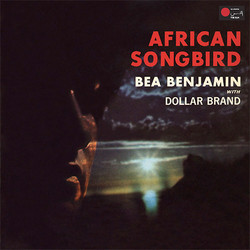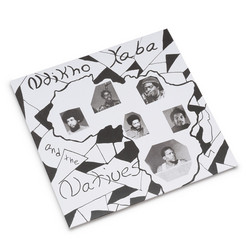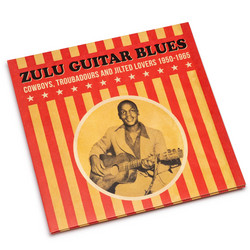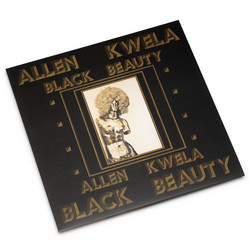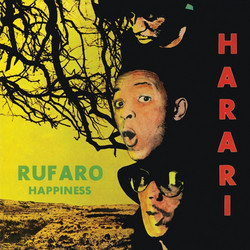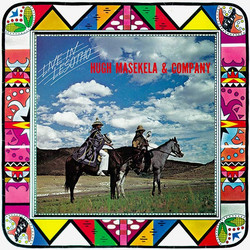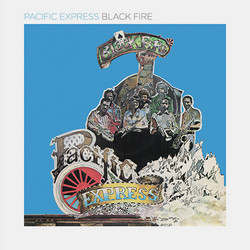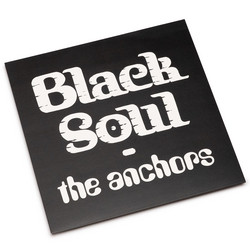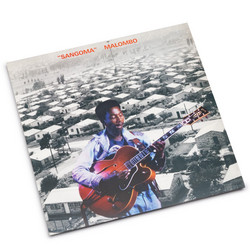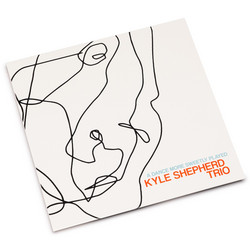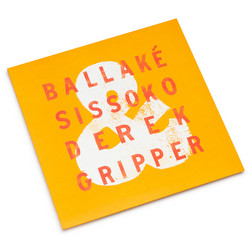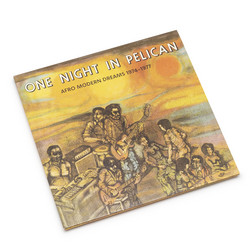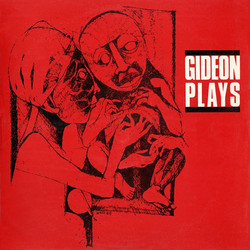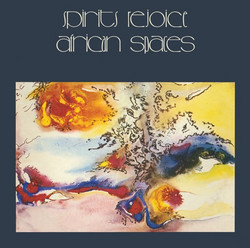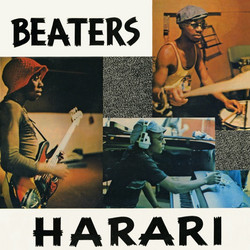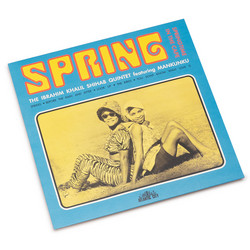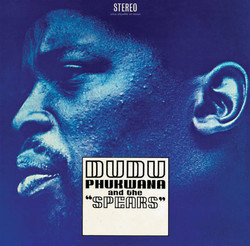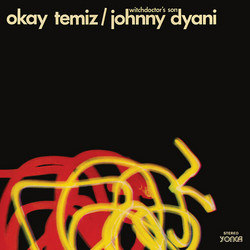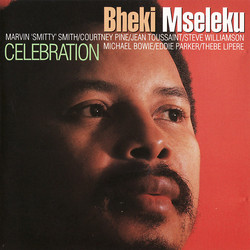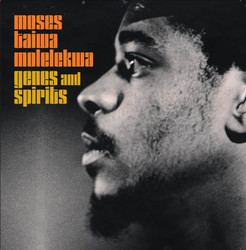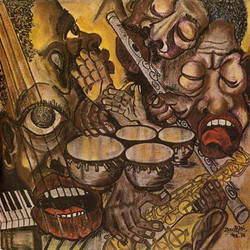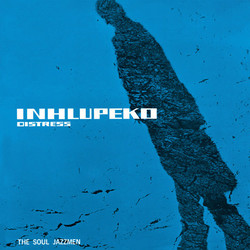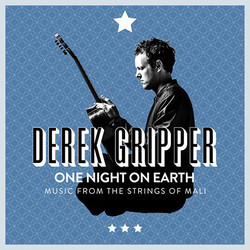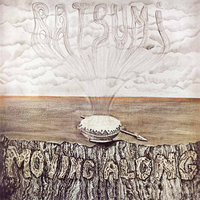Bea Benjamin
African Songbird
Matsuli Music is proud is announce the re-issue of African Songbird, the masterpiece from South Africa's greatest jazz singer, Sathima Bea Benjamin. Originally released in 1976, African Songbird was a debut long overdue. The splendid vinyl reissue of African Songbird opens with a cavernous, spacious, enormous sound, Bea Benjamin’s voice is introduced by Dollar Brand’s plangent, lingering electric keyboards before the ensemble joins in like rolling thunder. The vibrant plucked bass (provided by Louis Spears, Basil Moses and Lionel Beukes) briefly dominates before Basil ‘Manenberg’ Coetzee’s flute comes weaving in around the vocal with Brand’s delicate electronic keyboard offering judicious comments. Coetzee also plays tenor sax with a huge, rich tone that sweeps across the soundscape.
The album consists of three long tracks, all composed by Bea Benjamin and arranged and conducted by Dollar Brand. Side One is devoted to Africa which, as noted, features the haunting, forceful sax of Coetzee. Although its centrepiece is always Bea Benjamin’s sweet, raw, ecstatic vocals, Africa later gives way to a funky keyboard odyssey accompanied by the hippest of percussion courtesy of drummers Doug Sides and Monty Weber, before Benjamin returns for an ending of hallucinatory intensity. Here trumpeter Billy Brooks (formerly with Lionel Hampton) distinguishes himself by providing eerie atmospherics and licks of exquisite urgency. African Songbird is a tour-de-force, and arguably the most dramatic and powerful release on Rashid Vally's As-shams label. The opener, 'Africa', is the album's fulcrum, a statement of breath-taking musical, personal and political complexity. It is a song of exile, of loss, and of return: a song that is both personal and universal, speaking for a people made homeless in their own land, speaking to those whose ambivalent embrace of exile ached for a homecoming. It speaks too of hope and resolution. 'Africa' is a personally powerful declaration from a remarkable African woman: a song of deferred self and dislocated space finally resolved in an emotional homecoming. It is a song of celebration and mourning -- a heartfelt paean to her home that is shot through with the raw sorrow of lament. Sathima's voice, wholly unique in jazz singing, gradually sheds its musical supports as the programme develops. From the thickly-layered tumult of 'Africa,' through the characteristic Cape Town swing that informs 'Music,' the instrumentation is quietly reduced, then finally dispensed with. The title track is performed a capella, but for the natural sounds of the sea coast, the gulls and surf of the Cape itself. After many years of silence, two deferred albums, and over a decade of rootless exile from a home that had been made inhospitable by the inhumanity of apartheid, Sathima's voice is finally heard, alone with her song, naturally, like a bird. The CD is housed in a six panel digipak.
